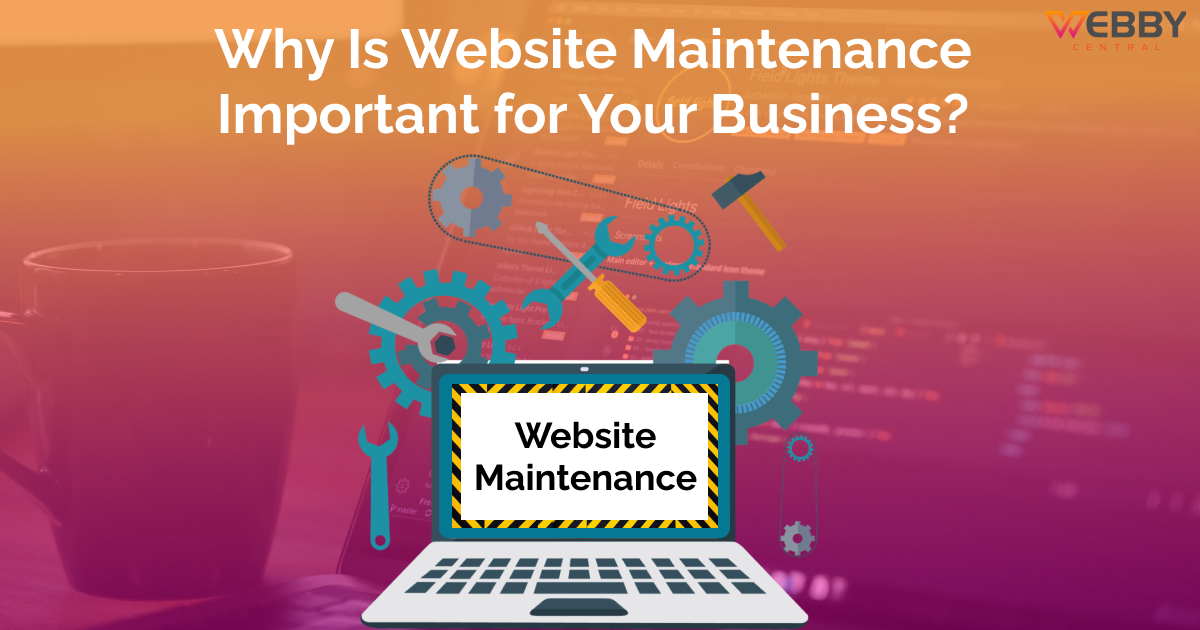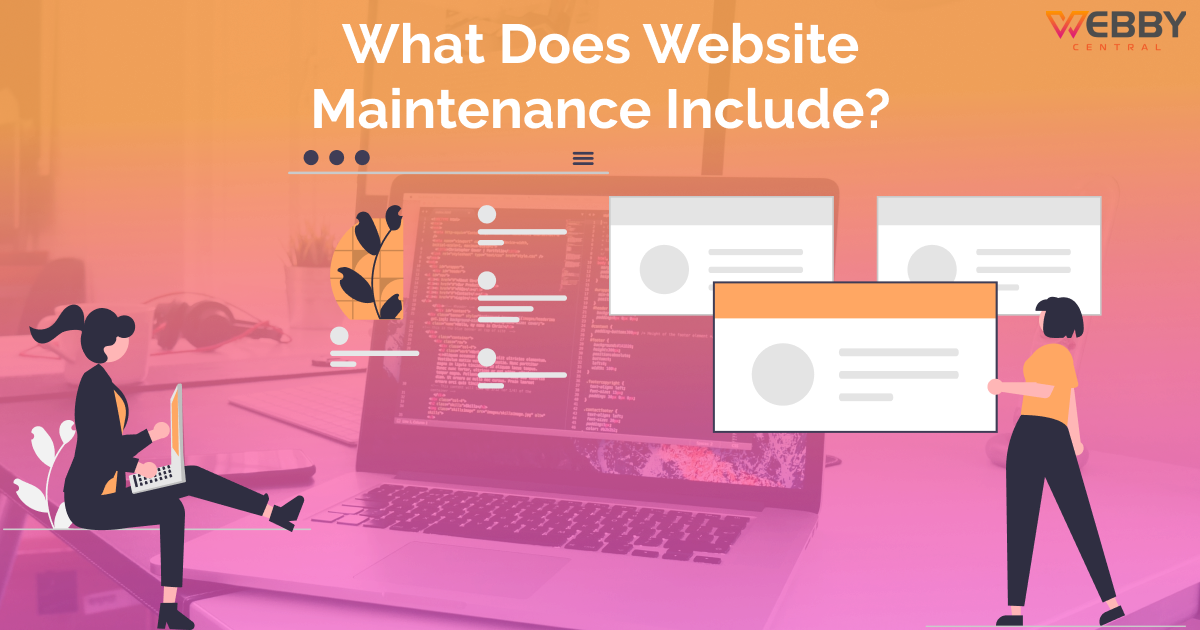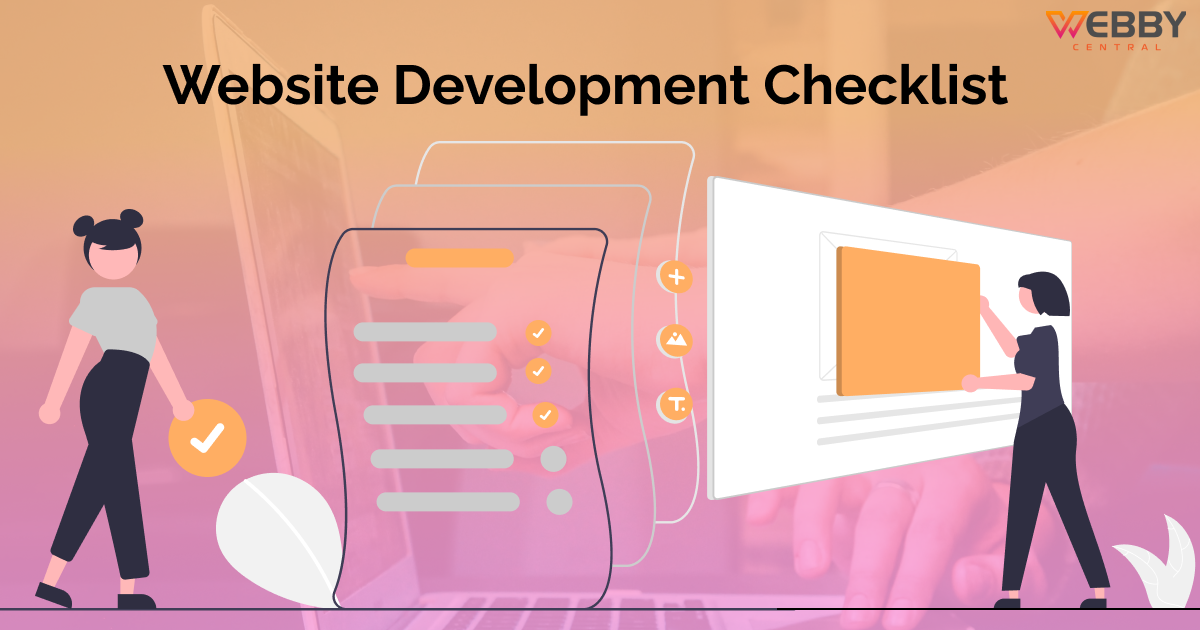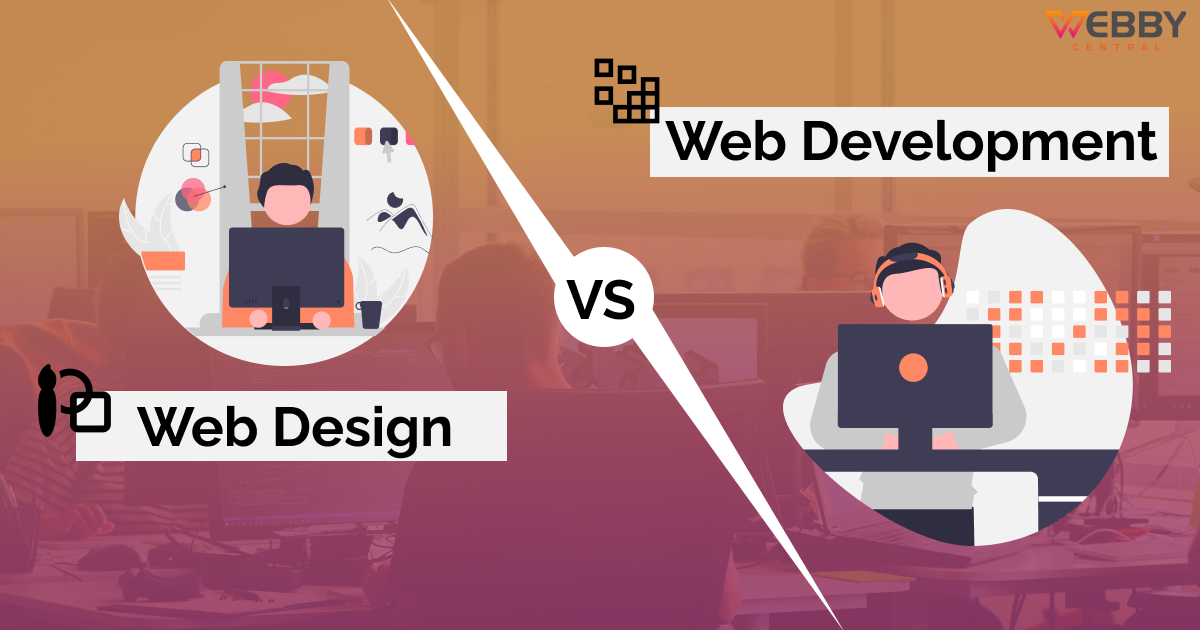Website maintenance is the process of keeping your site up-to-date and running with any changes or additions. This post outlines all the crucial things that website maintenance includes to help you prevent website problems down the road, keeping you ahead!
Websites are like new cars. They need to go through maintenance and upkeep, just as much as any other asset in your business (and sometimes even more)! The company’s size doesn’t matter because every site has something that needs attention, whether it’s monthly or daily updates – whatever works best for you!
All in all, if you have built your website, you ought to maintain it, no matter what. However, website maintenance is often an overlooked task; it’s so important! But why should you even emphasize website maintenance? Do you want your website to appear outdated to your potential customers? Of course, not. Nobody does. And that’s why you need to emphasize regular website maintenance.
Having said that, 87% of websites have high or medium cyber security risks. 95% of websites run on outdated software with known vulnerabilities. Also, 77% of websites take more than 10 seconds to load on mobile. All these stats impact your website. As a result, they may pull your customers or push them back. Hence, emphasizing website maintenance keeps your site up and running.
Coming to the main topic — What does website maintenance include? There are many tasks that site owners can do to ensure their website stays up and running. Let’s uncover everything you must do regularly to keep your website in top shape.
What Is Website Maintenance?
Website maintenance is the process of updating and fixing a website. Websites that don’t get updated regularly can become outdated, and search engines will penalize these websites by ranking them lower than other sites.
Websites with broken links, images that don’t work, and content that is no longer relevant will turn away visitors from your site. Most websites require maintenance after time, whether because the client wants an update or because something doesn’t work properly.
The Importance of Website Maintenance for Businesses
Websites come in all shapes and sizes, but they all require some form of updating. This maintenance can take many forms, such as changes to content, SEO copywriting, SEO link building, etc. Website maintenance refers to the care given to a website where regular updates are made in response to market needs.
It means taking care of your website to function smoothly without any glitches or bugs that might hinder its performance. Website maintenance will keep the information on your site current and accurate, ensure that visitors have a positive experience accessing it, and prevent the site from being vulnerable to hackers.
What Does Website Maintenance Include?
Website Testing (Annually)
It’s important to test your website regularly. And many website developers recommended that all websites should be tested annually by a full digital agency. Why? Because testing websites annually ensure that the website operates as intended and doesn’t contain any non-functional elements or broken links, which can cause problems for users, search engines, and brand image. So test your website annually.
Browser Compatibility Testing
Browser compatibility testing is crucial for maintaining websites for several reasons. The website will be viewed by people using many different browsers and operating systems; it has to work on all of them. If someone cannot use the website due to compatibility issues, you might lose that customer. Also, if the website is updated, but the compatibility problems are not fixed, it might still not work on some browsers.
Software Updates Check (Monthly)
As a website owner, you understand how your website works, what it does, and what kind of function is needed. However, as the development of technology doesn’t stop on its own, websites also need to be updated to maximize their functions and security purposes. That’s where monthly software updates come in. Monthly software updates check is crucial in such aspects.
Website Backup
Website maintenance and site upkeep are extremely important for it to function properly. Site backup is important for website maintenance because it saves all data that has been put into the website. This includes text, files, etc., which are used to keep the website running smoothly. Also, this is extremely helpful when restoring a backup after damage occurs, resulting in loss of function or any other type of disturbance or malfunction for the site.
Result Measuring (Weekly)
Measuring the result of your website every week is very important, especially if you want to become successful. This is because changes in a certain behavior, experience, or situation are detected only after a detailed observation over time has been conducted. Websites that do not measure their results will be left behind with the continuous change in users’ online preferences and habits. Hence, the result measuring for your website should be done every week.
What Are the Key Benefits of Website Maintenance?
Better Search Engine Ranking
The days of “set it and forget it” are gone. Today, website maintenance is more about ensuring continued success than avoiding costly downtime. Nowadays, regular website maintenance contributes to better search engine ranking.
If you’ve tried going for months or even years with a poorly optimized website without any changes, you’re probably to the point of doing anything to get Google back on your side. Hence, frequent website updates = better search engine ranking.
Up-To-Date Website
A website can be kept up to date in several ways. One way is regular website maintenance. It helps you check a site’s content to make sure that everything necessary, such as contact information and current policies, is accurate.
If there are incorrect details or missing information, a web admin can edit them to provide a user with accurate information and more. So adopting a website maintenance service is a lucrative move for you as it keeps your site updated and running.
More Customer Engagement
To stay relevant to their current customers and attract new customers, you need always to keep your website up-to-date. And website maintenance can help you with that. Customers expect a website that is clean, professional, and up-to-date.
If the site begins showing signs of age, it will reflect poorly on your business’ image. Many businesses fail to realize how important website maintenance is until they fall behind. Don’t commit that mistake and adopt website maintenance services right now for more customer engagement.
Improved Brand Image
A few days ago, Lexy Jane read an article about website maintenance on a client’s site. To her surprise, the client only had one post published in the past year. This is just one example of why website maintenance is so important.
Websites are critical to building up your brand image and reputation because they are accessible 24/7 any time of day or night. Taking a site down for months at a time and not allowing customers and interested parties to view updated content is highly damaging to any brand’s image or reputation.
Higher Sales
Running a website can be difficult and time-consuming. However, it’s necessary to keep up with the latest trends and technology changes to attract as many prospective customers as possible.
So why is updating your website important? One of the main reasons is higher sales! If you fail to update your site regularly, consumers will seek out other, updated sites that can provide more information and better descriptions.
Enhanced User Experience (UX)
Website maintenance is usually associated with websites that are not easily accessible or functional. But it turns out this may actually improve the user experience. Maintenance keeps website content fresh and up-to-date – showing relevance to what’s going on in the world around us.
If a site isn’t maintained, regular visits could produce outdated information. All in all, maintenance keeps website details up-to-date and relevant to user needs. Keeping websites maintained also prevents errors on the site that may compromise user experience.
Improved Security
Security is an important component of every website, no matter what kind it is or where it’s hosted. Updating security features on a website can be accomplished by performing regular maintenance tasks either manually or via an automated schedule.
More often than not, websites are targeted for malicious intent because they’re left unmonitored and unmanaged. Fortunately, there are simple things web admins can do to improve the security of their websites, including SSL implementation, performing website backup, updating software, etc.
What Are the Steps in Website Maintenance? The Complete Checklist
Weekly Checklist
- Check for broken links
- Update image alt tag descriptions
- Check for broken images
- Create a copy of current posts/pages in case they get deleted or corrupted and prevent them from being lost if your database gets hacked. Create these copies monthly at least, but weekly is better.
- Store the files on an external hard drive
- Update thumbnails for posts and pages that have changed since the last update.
- Scan your website for malware. If you don’t have a scanner, Google “website malware scanner.”
- Ensure that the administrative email address of your site is working and can receive emails from visitors who encounter errors
Monthly Checklist
- Update website’s content
- Update scripts and plugins
- Check for bugs in the website
- Perform security scans on the website
- Update server environment (OS, PHP, MySQL, Apache/NGINX, HTTPd)
- Back up the current data stored on the website’s files and databases
- Perform a manual Optimization on the database with phpMyAdmin
- Perform a manual Optimization on the server environment with NGINX/apache
- Check and fix permission issues
- Review and update the website’s inbound links with Google webmaster tools
Quarterly Checklist
- Force-cache all dynamic pages in the CMS dashboard
- Review settings for plugins that are no longer being used to disable them
- Backup database and files, store copies in a remote location off-site
- Check plugin compatibility with the current version of CMS
- Clean up unused tags, categories, posts from your old blog posts if needed
- Delete comments that violate website policies
- Review and update sitemap regularly
- Update the robot’s file to ensure search engine crawlers can index new content
- Remove unwanted metadata from the header on pages if necessary
- Check if the Google Analytics account is installed, verify it is configured correctly
Yearly Checklist
- Ensure all images are served via HTTPS
- Check for any hardware issues
- Ensure the website is mobile responsive
- Check for broken links throughout the website
- Update copyright year
- Update blog
- Update social media profiles
- Check for broken scripts throughout the website
- Ensure online forms are working properly
- Update website content to reflect recent events (ex., New location, new products)
- Switch to SSL if not already on HTTPS
- Backup the site’s database and restore it into staging environment to confirm all
When Is Website Maintenance Should Be Done?
Most websites typically need to be maintained at least once a month to ensure that the website is running smoothly and efficiently. This process could include updating software and checking for broken links or content that needs editing or addition. The frequency of updates and renovations will depend on the type of website and how often it changes.
So how often should a website be maintained?
Websites that are frequently updated typically need to be maintained more frequently than websites that are not. For example, an online retailer might have several items for sale on its site at different prices. If the price of one of those items is changed, it may need to be reflected on the website’s front page. Depending on how often the prices change, this could require maintenance to be done several times per day or week.
How Much Does Website Maintenance Cost?
Web maintenance is the most basic level of website support. Website maintenance includes activities such as updating content, fixing broken links, etc. However, most websites have to be updated more frequently than these basic services allow for, leading to annual website management plans.
Annual website management plans are packages that include checking for malware and viruses, generating reports on search engine listings, social media integrations management, or reporting on-site traffic.
These should take care of your regular updates and ensure that everything goes well throughout the year (or even multiple years). The size of a company/website will generally determine how often it needs an update; however, some companies will also want specific updates done more often than others.
In Conclusion
Website maintenance is a necessary and important task for any company that wants to be successful online. Suppose you want your website to rank well in search engine results, provide the best customer experience possible, or stay up-to-date with all of Google’s ever-changing rules and updates. In that case, it’s time to invest some time into regular upkeep.
All in all, regular website maintenance helps the website to perform smoothly and glitch-free. The right website maintenance partner will go to the bottom of your website and help you keep your website up-to-date, relevant, and running.










Write A Review